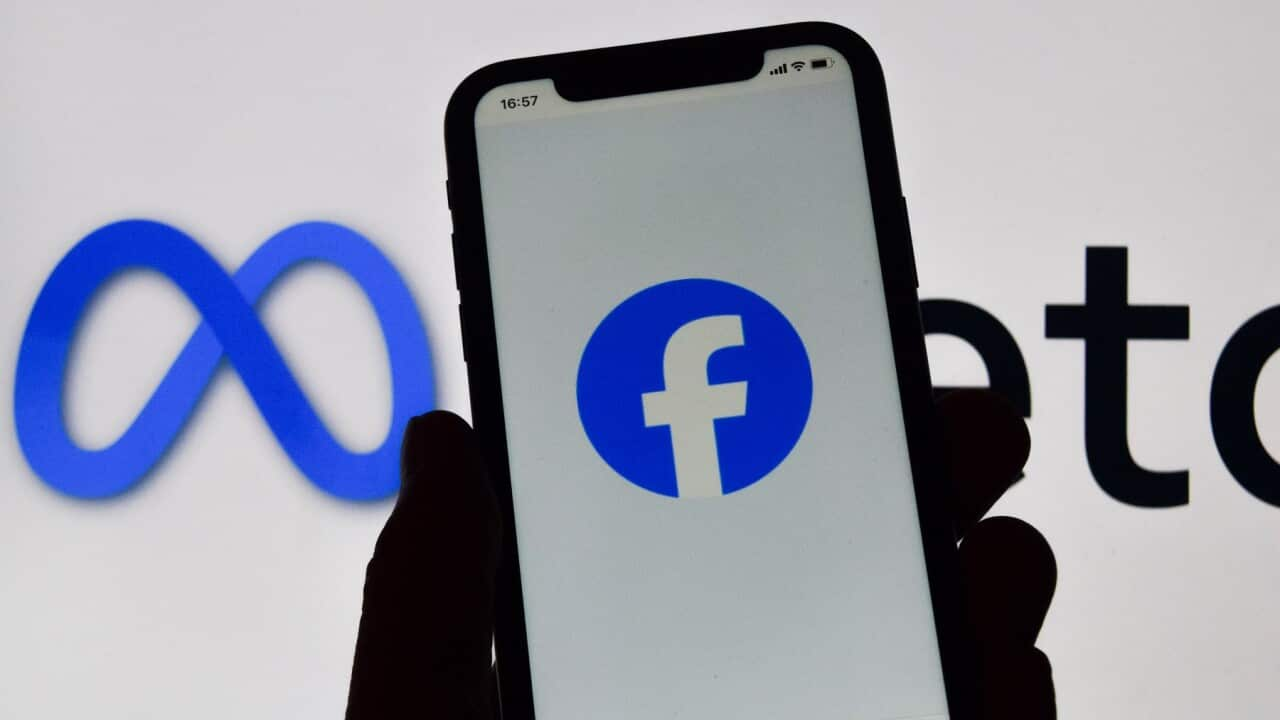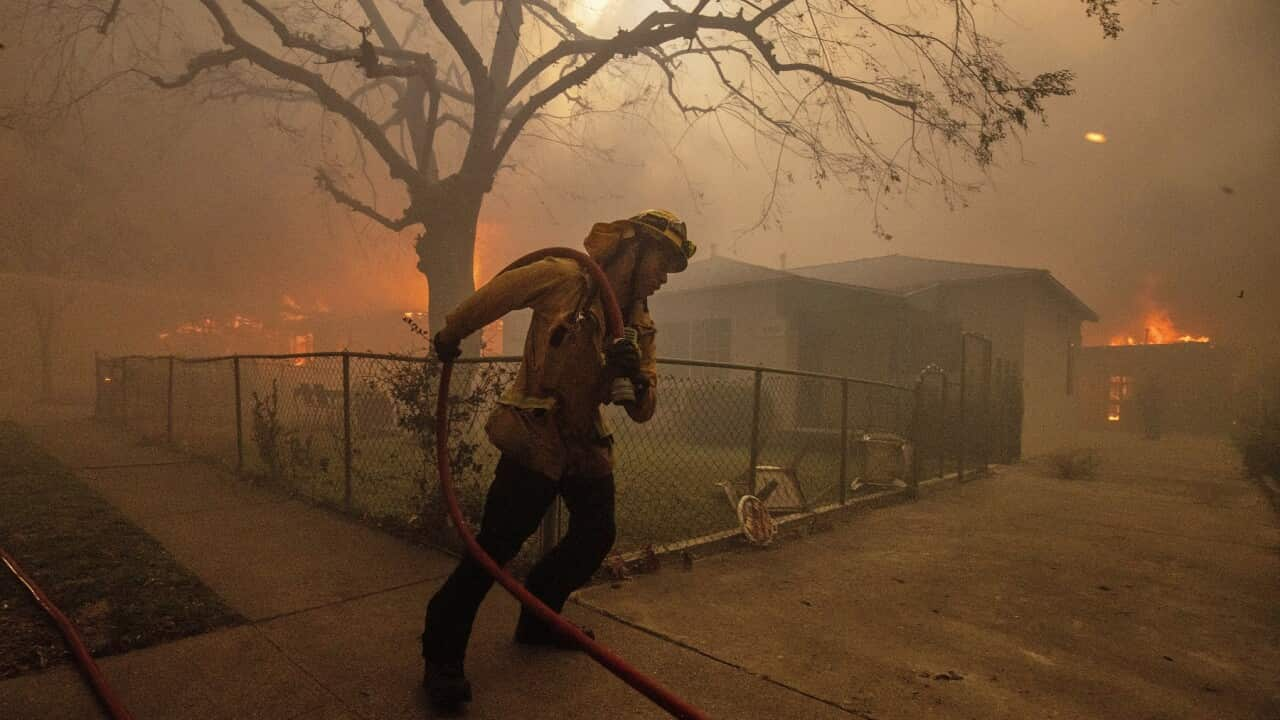TRANSCRIPT
"Even if they accidentally censor just 1% of posts, that's millions of people, and we've reached a point where it's just too many mistakes and too much censorship. The recent elections also feel like a cultural tipping point towards, once again, prioritising speech. So we're going to get back to our roots and focus on reducing mistakes, simplifying our policies, and restoring free expression on our platforms."
As well as eliminating this fact-checking feature, Mark Zuckerberg says the company will look to bolster free speech and boost political content.
It comes after Donald Trump's November election win, which Mr Zuckerberg directly refers to in his video address.
"We're going to work with President Trump to push back on governments around the world. They're going after American companies and pushing to censor more. The US has the strongest constitutional protections for free expression in the world. The only way that we can push back on this global trend is with the support of the US government, and that's why it's been so difficult over the past four years when even the US government has pushed for censorship. By going after us and other American companies, it has emboldened other governments to go even further, but now we have the opportunity to restore free expression, and I'm excited to take it."
Mr Zuckerberg's support for Mr Trump is seen as an effort to reconcile his relationship with the president-elect following his election win in November, which also saw Mr Zuckerberg donate one million dollars to his inauguration fund.
Donald Trump has been a harsh critic of Meta and Zuckerberg for years, accusing the company of bias against him and threatening to retaliate against the tech billionaire once back in office.
For now, the changes are limited to the US, but Mr Zuckerberg was clear in his criticisms of other countries' restrictions on Meta's platforms.
Ned Watt is a researcher in digital communications at the Queensland University of Technology and specialises in independent fact-checking.
He says while it's still too early to predict the exact outcome for Australian moderators and users of Meta's platforms, he says Australians should be concerned about this change.
"Mark Zuckerberg did state that this was only in the US but I think that this is a major strategic shift and perhaps ideological shift in terms of its content moderation policy. I think that there's going to be ripples of implications for independent fact-checking and independent fact-checkers around the world. And I think in terms of vulnerable online communities and stakeholders tied up in these political topics, which Zuckerberg mentioned, there's going to be implications as well, especially for women, transgender people, LGBTIQ+ people, of course."
He says independent fact-checkers working for Meta are signatories to the International Fact-Checking Network's core principles, and are committed to transparency and impartiality - something Mr Watt says is lacking in the 'community notes' approach Meta is adopting to mirror the platform X.
But perhaps even more concerning, he adds, is the risk of promoting harmful content under Mr Zuckerberg's pledge to boost political content and foster free speech.
"But I think this absolutely risks amplifying hate speech and divisive rhetoric online, and that is something that we should be concerned about - how are powerful actors going to use these changes in content moderation and who is really going to have the right to exist and to speak on these platforms without being excluded or drowned out by the voices of others."
Doctor Philip Pond, a Senior Lecturer in Digital Media Research Methods at Melbourne University, agrees.
He says promoting political content will most likely result in the amplifying of a specific type of conservative Trumpian, or 'Make America Great Again' ((MAGA)), discourse.
"It means fairly predictably that Facebook's going to feed its users more MAGA content, simple as that really. I think they're going to open up their platform again to the content creators and the type of content that is currently pervasive on X and Truth (Social) and the like. I think it's far more likely you'll have a homogenisation of content across those platforms."
But Dr Pond is careful to point out the work of moderators has not entirely prevented misinformation on social media platforms.
"I'm not sure we should kid ourselves into thinking that there's currently a golden age of truth on Facebook that's about to be lost. There's not, that's nonsense. Fact-checking has historically been of very limited effect in terms of steering our discourse around this kind of virtuous path of truth. That's just not what happens. Whatever effect it has had for good, will obviously go."
As Australia approaches a federal election, when asked about the changes by Meta, Prime Minister Anthony Albanese re-stated his attitude towards social media companies and their responsibility to protect users from harm.
"Social media has a social responsibility. I said this morning that the criticism that social media will make about our decision and legislation to ban social media for those under 16 is one that we don't resile from. We will stand up for Australia's national interests."
Greens Senator Sarah Hanson-Young has also called for legislation around a duty of care by social media companies to prevent misinformation and harmful content.
She flatly refutes Mr Zuckerberg's claims about removing fact-checkers to prevent mistakes and avoid censorship.
"We've now got a situation where we've got two big tech billionaires, Mark Zuckerberg and Elon Musk, thinking that they should run the world, that they should dictate what is said, who says it, how loud it is said, and whether it's truthful. And this is about freedom to dictate for these big tech tycoons. (It's) nothing to do with the freedom of speech or the right of users to engage on a platform with safety and care."
Professor Pond says misinformation on social media is certainly something Australians should be concerned about ahead of the federal election, as Australia's social and political landscape is heavily influenced by the US.
But he says it's a very complex issue to address, and the Albanese government's misinformation and disinformation legislation, proposed in September last year, too heavily relies on social media companies to be responsible for protecting truth.
"Fact-checkers only have value if you think truth only has value. Truth only has value if we as a society, as individuals, care about truth and value it. And the harder side of this conversation is that it's been the extent to which we value truth and as an idea, as an abstract ideal thing, or even just as a kind of a decision-making criteria in our own lives that's been pretty flimsy. Unless we at large value truth, it's something we have to do ourselves."
Ned Watt adds that social media misinformation is particularly concerning during election campaigns, which he says are heavily influenced by these platforms.
"I think that this is a big blow for accountability. The flows of power in technology, these kind of changes, really puts the emphasis and responsibility on the user, which is an enormous responsibility to police the information and kind of narratives that they're exposed to. And I think that this is a win for media manipulation and a big change to the information environment."
Other experts say it's important not to overestimate social media's influence on elections and voting behaviour.
Terry Flew is a Professor of Digital Communications at the University of Sydney.
"Why particular voting trends are happening is tied up with a lot of factors. People are not simply blank slates who then go onto social media and form an opinion. We haven't had legislation around the use of deep fakes AI generated DeepFakes in election campaigns, and that's certainly a concern."
A statement from the Australian Communications and Media Authority says Meta's announcement about changes to fact-checking processes currently only relates to the United States.
It says there's apparently no immediate plan to make changes to the program in Australia, but the Authority will monitor changes that may affect Australian users on Meta platforms.
It says Meta is a signatory to the Australian Code of Practice on Disinformation and Misinformation, and has committed to a range of initiatives including with third-party fact-checking organisations.
The eSafety Commissioner has been contacted for comment.













